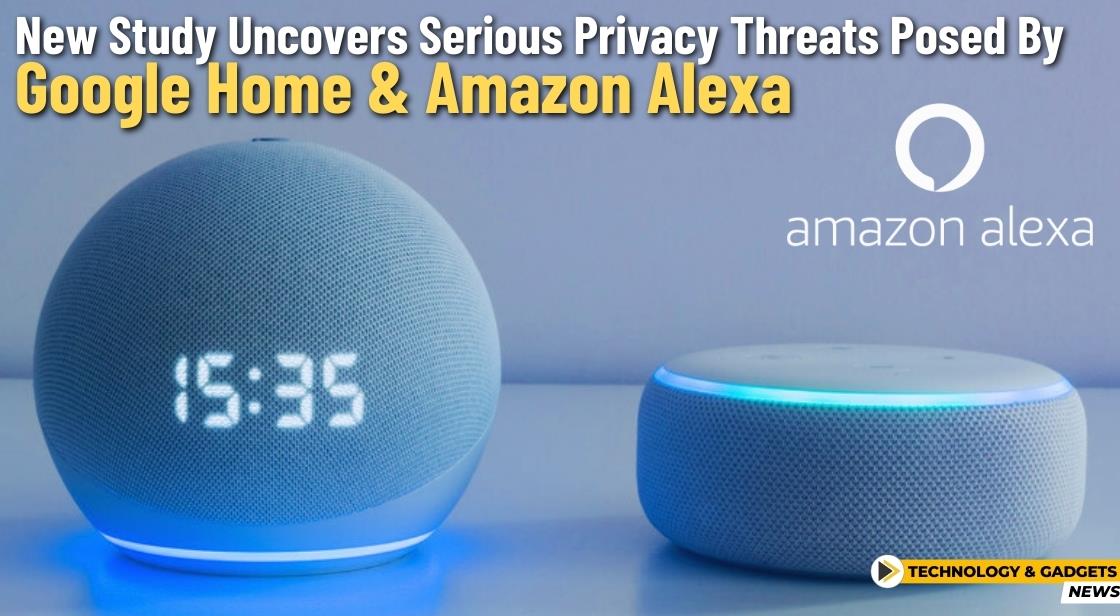New Study Uncovers Serious Privacy Threats Posed by Google Home and Amazon Alexa

News Synopsis
Smart home devices like Amazon Alexa and Google Home have become increasingly popular, with projections estimating 780 million users by 2028. While these devices offer undeniable convenience, concerns about user privacy have consistently shadowed their rise.
Deep Dive: Unveiling Data Collection Practices
A recent study titled "Smart Home Privacy Checker" sheds light on the data collection practices of various smart home devices. The findings are concerning, revealing the extent to which these devices collect and track user information.
Amazon Alexa: Leading the Data Collection Race
The study reveals that Amazon Alexa tops the list in data collection, gathering a staggering 28 out of 32 possible data points from users. This includes highly sensitive details like contact information, location data, and even health-related information. Every data point collected is then linked to user profiles, allowing for extensive profiling and potential privacy breaches.
Google Home and Beyond: A Widespread Issue
While Google Home follows closely behind Alexa by collecting 22 data points, the problem extends far beyond these two major players. The study highlights that even seemingly innocuous smart home devices, like Keurig coffee machine apps, collect a concerning amount of user data (19 data points).
Privacy Inferences and Security Risks
The "Smart Home Privacy Checker" emphasizes the potential consequences of this widespread data collection. It goes beyond mere convenience, suggesting that such practices can lead to:
-
Privacy Inferences: By linking data points, companies can create detailed profiles of users, potentially leading to unwanted inferences about their behavior and habits.
-
Data Theft: With a large amount of personal information readily available, smart home devices become targets for potential data breaches and identity theft.
-
Uncontrolled Data Sharing: The study raises concerns about the lack of transparency regarding data sharing practices. Users may be unaware of how their information is being used or shared with third parties.
A Call for Transparency and User Control
The study highlights a crucial need for greater transparency from smart home device manufacturers. Here are some areas requiring improvement:
-
Regular updates to privacy policies: Many apps have not updated their privacy policies in over a year, leaving users in the dark about how their data is being used.
-
Clearer data collection practices: Users deserve to know exactly what information is being collected and why.
-
Stronger user controls: Users should have the ability to control what data is collected and how it is used.
Security Cameras: Another Privacy Concern
The study also raises concerns about data collection practices of security camera applications like Lorex and Deep Sentinel. These apps collect an average of 12 data points per user, often including video and audio information. This raises serious alarms about potential privacy violations and unauthorized surveillance.
The Smart Home Revolution: Balancing Convenience and Security
The growing popularity of smart home devices presents a double-edged sword. While they offer convenience and automation, the potential privacy risks cannot be ignored. As the industry evolves, striking a balance between convenience and user privacy is critical. Manufacturers need to prioritize strong data security practices, transparent privacy policies, and robust user controls.
Conclusion
The findings of the study highlight the urgent need for improved privacy practices and transparency from companies producing smart home devices. As the use of these devices continues to grow, so too does the importance of safeguarding user data against potential misuse and ensuring users are fully informed about how their information is being collected and utilized.
You May Like









